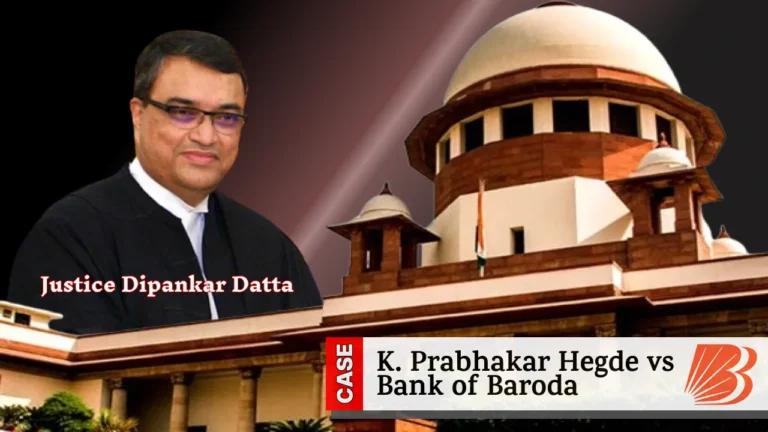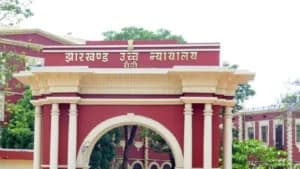The Supreme Court of India has delivered a significant judgment in K. Prabhakar Hegde vs Bank of Baroda, Civil Appeal No. 6599 of 2025, highlighting that violation of the principles of natural justice itself amounts to prejudice and cannot be ignored on the ground of lack of proof.
Background of the Case
K. Prabhakar Hegde joined Vijaya Bank in 1959 and rose to the position of Zonal Head in Delhi. In 1999, disciplinary notices were issued against him for alleged irregularities in sanctioning temporary overdrafts (TODs), including one worth ₹15 lakh to M/s Kunal Travels Pvt. Ltd. After inquiry proceedings, he was dismissed from service in July 2002, even though he retired in 2006. His appeal to the bank's Appellate Authority was dismissed in 2003.
Read also:- Delhi High Court Stays Defamation Decree Against HT Media in Rs. 40 Lakh Damages Case
A Single Judge of the Karnataka High Court later quashed the dismissal in 2009, granting him consequential retirement benefits. However, a Division Bench overturned this in 2021, reinstating the dismissal. Hegde then approached the Supreme Court.
Key Issues Before the Court
The apex court considered three central questions:
- Whether denial of the preliminary inquiry report prejudiced the appellant.
- Whether failure to question him on circumstances under Regulation 6(17) of Vijaya Bank Regulations vitiated the inquiry.
- Whether disciplinary proceedings could continue after superannuation.
Justice Dipankar Datta, delivering the judgment, placed strong reliance on earlier Constitution Bench rulings in S.L. Kapoor v. Jagmohan, Olga Tellis v. Bombay Municipal Corporation, Union of India v. Tulsiram Patel, and A.R. Antulay v. R.S. Nayak.
The Court reiterated:
"The non-observance of natural justice is itself prejudice to any man and proof of prejudice independently of proof of denial of natural justice is unnecessary."
On the preliminary inquiry report, the Court held that since the inquiry officer did not rely on it for his findings, its non-supply to the appellant did not amount to prejudice. However, on Regulation 6(17), the Court observed that the Inquiry Officer had a mandatory duty to question the charged officer on circumstances adverse to him. Failure to do so violated the safeguard guaranteed under natural justice.
Read also:- Madras High Court Rules Resolution Professionals Are Public Servants Under Prevention of Corruption Act
The Court also noted that the Central Vigilance Commission’s (CVC) recommendation for dismissal was relied upon without being furnished to the appellant, which further tainted the disciplinary process.
The Supreme Court set aside the High Court’s Division Bench order and the disciplinary dismissal, restoring the relief granted by the Single Judge. Consequently, Hegde became entitled to full retirement benefits as if he had never been dismissed.
Case Title: K. Prabhakar Hegde vs Bank of Baroda
Case Number: Civil Appeal No. 6599 of 2025















